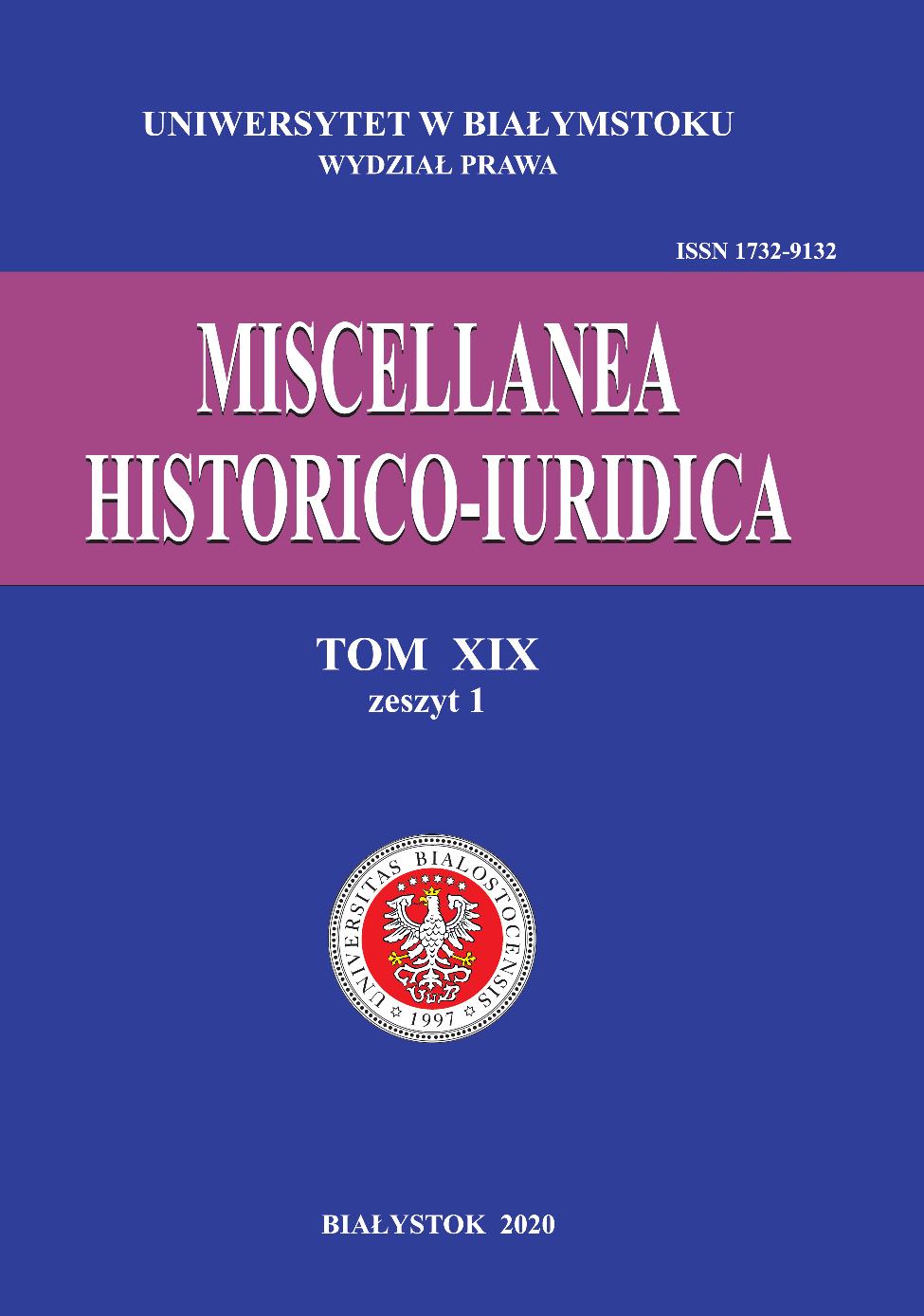Disputes about the concept of childhood and the child’s subjectivity from the Middle Ages to the early modern times
Keywords:
childhood, child’s subjectivity, P. Ariés, development of the education systemsAbstract
The article presents the controversy around the concept of childhood and subjectivity of a child in past centuries - in the Middle Ages and the early modern period. One of the analyzed issues concerns the existence in medieval culture of understanding the child as a being different from an adult. According to the widespread view, formulated in the 1960s and 1970s by Philipp Ariés, childhood in the Middle Ages was not noticed, it was not considered a separate, important stage in human life, a period governed by specific rules, different from important principles of the adult community. The child entered the adult world very early and assumed the role assigned to him. The discovery of childhood did not take place until the 16th and 17th centuries, when it began to be recognized that the child was and should be the subject of special treatment. Ariés' view of the non-existence in the Middle Ages of the sense of separateness of childhood is criticized by some medievalists - they accuse the French researcher of technical defects and an analysis of unrepresentative, too scarce source materials. According to the adversaries of Ariés, the analysis of childhood in the Middle Ages cannot be based on the modern definition of this term, just as considering the relationship "children - adults" in the Middle Ages cannot refer to contemporary categories. Opponents of the thesis about the non-existence of the concept of childhood in the Middle Ages argue that this epoch had its own vision of it, but it was a vision definitely different from the present one. The early modern period bring a new approach to childhood and the subjectivity of a child - the seventeenth century, in addition to the approach that the child placed at the center of family life, promotes an attitude that places particular emphasis on the child's development and fulfilment of its mental needs, while the eighteenth century brings a "romantic" vision of the child when it becomes - as a bearer of exceptional qualities and a creature of extraordinary sensitivity - a role model for adults. The development of education has certainly contributed to the formation of a subjective approach to children; the evolution of the attitude towards children in the human mentality finds its fullest reflection in the development of education and school institutions. Today, the concepts of childhood and the subjectivity of a child are the subject of complex interdisciplinary research - scientists from various fields of science combine their efforts to develop the most complete concept of childhood, corresponding to the challenges of modern times.
References
Anderson M., Approaches to the history of the western family, 1500-1914, Cambridge 1995
Ariés P., Historia dzieciństwa, Warszawa 2010.
Bardach J., Historia państwa i prawa Polski, t. 1, Warszawa 1965.
Brzeziński W., „Pozytywna” historia dziecka i dzieciństwa w średniowieczu. Phillipe Ariés a historiografia amerykańska, [w:] Dziecko w rodzinie i społeczeństwie. Starożytność i średniowiecze, red. J. Jundziłł, D. Żołądź-Strzelczyk, Bydgoszcz 2002.
Brzeziński W., Obraz dziecka w perspektywie historyczno-porównawczej. Przeszłość we współczesności, współczesność w przeszłości, „Przegląd Pedagogiczny” 2012, nr 1.
Golus A., Od przedmiotu do podmiotu. Status dziecka w rodzinie i społeczeństwie, „Studia Edukacyjne” 2018, nr 48.
Heywood C., The History of Childhood, Children and Childhood in the West form Medival to Modern Times, Wiley 2013.
History of Childhood, red. L. deMause, Nowy Jork 1995.
Jacyno M., Szulżycka A., Dzieciństwo. Doświadczenie bez świata, Warszawa 1999.
Janion M., Gorączka romantyczna, Warszawa 1975.
Jaros P., Definicja dziecka, [w:] Konwencja o Prawach Dziecka. Wybór zagadnień (artykuły i komentarze), red. S.L. Stadniczenko, Warszawa 2015.
Johnson P., Historia Anglików, Gdańsk 1995.
Konwencja o Prawach Dziecka. Wybór zagadnień (artykuły i komentarze), red. Stadniczenko S. L., Warszawa 2015.
Kubale A., Dziecko romantyczne. Szkice o literaturze, Wrocław 1984.
Müller M., Childhood, Orphans and Underage Heirs in Medieval Rural England: Growing up in the Village, Birmingham 2018.
Munck T., Europa XVII w. 1598-1700, Warszawa 1998.
Orme N., Medieval children, New Haven and London, 2003.
Orme N., Medieval Schools: From Roman Britain to Renaissance England, New Haven and London 2006.
Smolińska-Theiss B., Dzieciństwo, [w:] Encyklopedia pedagogiczna XXI wieku, red. T. Pilch, Warszawa 2003.
Smyczyński T., Pojęcie dziecka i jego podmiotowość, [w:] Konwencja o prawach dziecka. Analiza i wykładnia, red. T. Smyczyński, Poznań 1999.
Stadniczenko S.L., Podstawy aksjologiczne i intelektualne kształtowania projektu Kodeksu rodzinnego, [w:] O potrzebie nowego Kodeksu rodzinnego i jego podstawach aksjologicznych. W 30. rocznicę uchwalenia Konwencji o prawach dziecka, red. S.L. Stadniczenko, M. Michalak, Toruń 2019.
Stone L., The Family, Sex and Marriage in England 1500-1800, London 1977.
Szczepska-Pustkowska M., W stronę filozofii dzieciństwa. Adultystyczna wizja dziecka i dzieciństwa z Arystotelesem w tle, „Przegląd Pedagogiczny” 2012, nr 1.
Wilson A., The Infancy of the History of Childhood: An Appraisal of Philippe Ariés, „History and Theory” 19 (2), 1980.
Wróbel-Lipowa K., Relacje dzieci-rodzice w polskiej rodzinie ziemiańskiej w XVIII wieku, [w:] Dziecko w rodzinie i społeczeństwie. Dzieje nowożytne, red. K. Jakubiak, W. Jamrożek, Bydgoszcz 2002.
Wywiad E. Jankowskiej z A. Rentonem, „Gazeta Wyborcza” na: https://weekend.gazeta.pl/weekend/1,152121,26225002,rodzice-wyslali-go-do-szkoly-z-internatem-mowili-wiemy-ze.html (24.09.2020).
Żołądź-Strzelczyk D., Rozumienie dzieciństwa w: Dziecko w rodzinie i społeczeństwie: Starożytność – Średniowiecze, red. J. Jundziłł, D. Żołądź-Strzelczyk, Bydgoszcz 2002.







